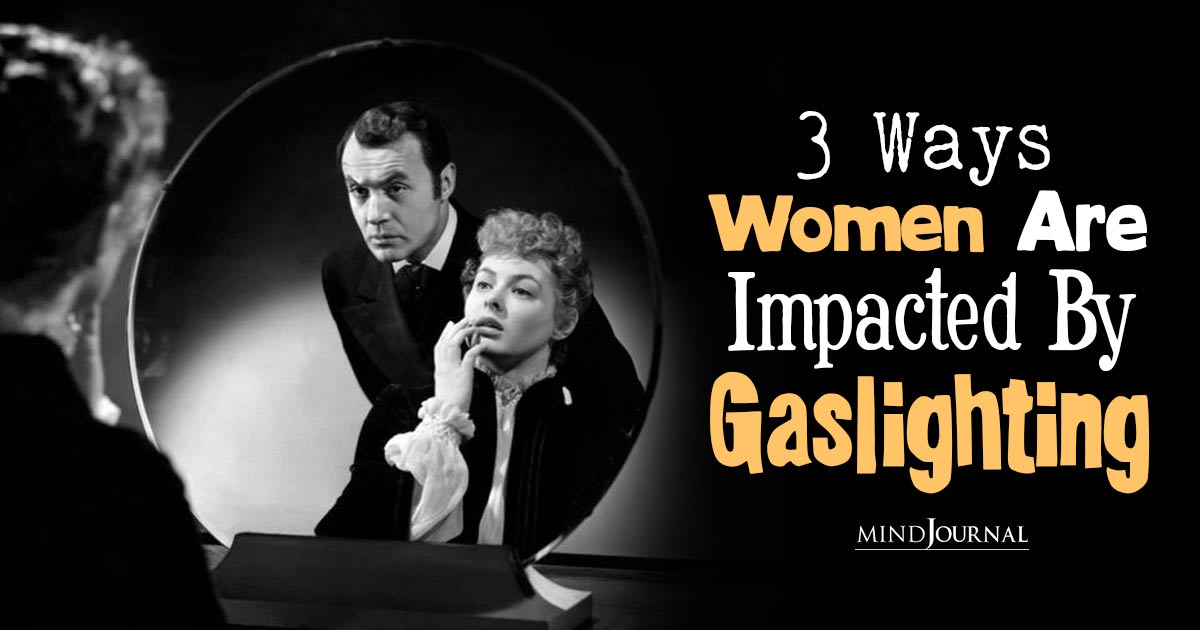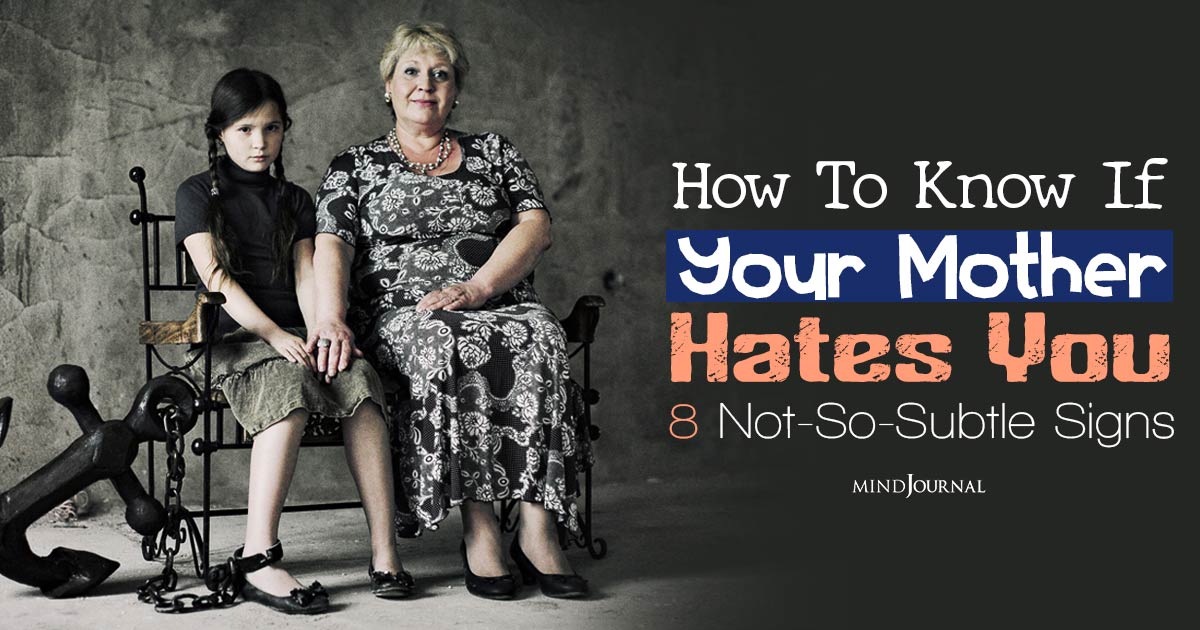As a woman, have you ever been a victim of gaslighting? There are so many ways women are impacted by gaslighting, which are not spoken about enough. There are some common gaslighting experiences women share that we are going to talk about here. Let’s explore the several ways women are impacted by gaslighting and what to do about it.
KEY POINTS
- Women can be particularly susceptible targets of gaslighting due to certain societal structures.
- Medical gaslighting has dangerous implications for women.
- Women are common targets of gaslighting in professional settings.
While every one of us should remain vigilant to the emotionally abusive effects of gaslighting, marginalized groups can be targeted at much greater rates. Women are particularly susceptible to gaslighting because patriarchy thrives off sustaining power over them. Women, generally speaking, are emotionally aware and sensitive to the needs of others, while also being pragmatic and decisive.
While emotional awareness and sensitivity are incredible assets to society, certain systems have tried to diminish these skills by labeling women as “too sensitive” or “overly emotional.”
In my book Gaslighting Recovery for Women: The Complete Guide to Recognizing Manipulation and Achieving Freedom from Emotional Abuse, I equip women with knowledge about how gaslighting uniquely impacts them and what can be done about it.
The following are three of the common gaslighting experiences women encounter and how to fight back.
Related: Identifying Gaslighting Tactics: Types Of Gaslighting, Phases, And Common Phrases Of Gaslighting
3 Ways Women Are Impacted by Gaslighting
1. Medical Gaslighting
In Melinda Wenner Moyer’s New York Times article “Women Are Calling Out Medical Gaslighting,” she outlined the issue of medical gaslighting that has existed long before there was a term to describe it.
For centuries, women have been told they were suffering “hysteria” in response to almost all mental health issues as well as any medical issues related to the uterus. Women’s health and bodily autonomy have been side-lined, while research, financial investment, and treatment options historically prioritized men’s health. This is problematic, as excluding women from medical research is a human issue that affects us all.
Heart disease, which presents differently in women than men, is one example of medically marginalizing women. Medical professionals often overlook life-threatening symptoms present in women. These mothers, daughters, sisters, and friends deserve the same medical care, respect, and attention as the rest of society, because when they suffer, we all do.
If you feel you have experienced medical gaslighting, such as not being allowed to read your own medical records, downplaying your symptoms, being discouraged from researching potential diagnoses, or being dissuaded from getting a second opinion, the following things can help:
- Bring a support person to appointments.
- Keep a log or diary of your symptoms and concerns.
- Get as many opinions as you need. You have the right to keep searching (albeit this is not always easy based on insurance or distance to providers).
- Know that your doctor does not have all the answers and if you feel they are not listening, they may not be the best fit.
- Ask other women what providers they would recommend.
When considering race, women of colour experience disproportionate instances of medical gaslighting. BIPOC women being discriminated against and stereotyped (such as racial bias in pain management), rather than seen and understood, further perpetuates the issues with medical gaslighting previously explored.
These women’s stories, voices, and personal experiences need to be heard, not disregarded. While having confidence in a medical provider’s skills and experience is important, they must also embody cultural humility.

2. Workplace Gaslighting
The workplace is somewhere where women can excel and bring their many gifts to create change in the world. The potential to balance power dynamics in favour of strong, intelligent women at work also means that gaslighters will use their tactics whenever possible to reclaim their power.
One space where women have growing potential for change is in politics, specifically women in Congress. A study published by the Cambridge University Press explored a common gaslighting tactic of interruptions. In the study, they examined 24,000 congressional committee hearings from 1994-2018 and found that women were 10% more likely to be interrupted and if the hearing was related to women’s issues the rate doubled.
Women being interrupted and then made to ignore the behaviours, or being doubted when they do confront them, is a common example of workplace gaslighting that hinders women from receiving credit for their work or advancements they rightfully earned in their careers.
If you feel you have been gaslit in the workplace, whether related to your professional goals and performance or through personal attacks, you can protect yourself by doing the following:
- Rather than confronting the gaslighter, identify the designated superior or HR support person and share your concerns directly with them.
- Document everything. It is unfortunate that any extra work must be placed on women, but documentation can help support your original ideas as well as highlight abuse from others. Sending emails or keeping minutes at meetings and having a system to share them are practical ways to do this. It truly is a privilege not to have to do this, and hopefully our shifting professional world will someday make this practice obsolete.
- Distance yourself from the gaslighter if possible.
- Consider leaving your job, especially if the gaslighter is in a position of power over your role. Again, this is unfair to ask of women, but you do have a right to be in a healthy and supportive work environment.
3. Superwoman Gaslighting
The term “I don’t know how she does it” is so common that it inspired a 2011 American comedy film by the same name. What we need to understand, however, is that as women we should not have to do it all, even though for decades we have been gaslit into thinking we must. This messaging is causing intense over-functioning that is hurting women and their families.
As of 2022, the Bureau of Labor Statistics reported that the percentage of mothers with children under the age of 18 who were working or looking for work was 72.9%. As the workforce changes the messaging must as well.
Instead of expecting women to be incredible mothers, employees and homemakers with little to no support, gender roles and sharing of duties must change at equitable rates. Part of deconditioning these deeply engrained beliefs is understanding which comments support this narrative.
- “She can do it all.”
- Anytime we question a mother for leaving their child to go engage in self-care.
- Questioning why they would want to go back to work after having a child.
- Questioning why they don’t want to go back to work after having a child.
- Questioning why a woman does not want to have children at all (or worse, telling them they will surely change their mind).
- Not allowing a woman or mother to say “no” to an obligation or set a boundary without making them feel guilty.
- Expecting daughters to bare a more familiar burden for aging parents than sons.
To perpetuate the narrative that women should do it all, the following gaslighting phrases are commonly used:
Trivializing: “Why are you so needy / emotional / hysterical / ridiculous / overdramatic / negative?”
In the case that someone says any of these statements to you, or questions a boundary you have set, know that you do not have to believe their narrative as truth.
Related: Gaslighting in Relationships: 7 Questions To Tell If You’re Being Manipulated
Claiming Equitable Power
Not only women but all of society should work to identify and combat gaslighting whenever it occurs. In Stephen Covey’s bestselling book The Seven Habits of Highly Effective People, he explored the power of listening.
According to Covey, many of us are in the habit of listening to respond instead of listening to hear, resulting in misunderstanding, conflict, and an inability to empathize. When this happens, one person or group is left feeling unseen, and we are less likely to learn from one another.
If someone in power lacks understanding or knowledge, we would all benefit from those people admitting what they do not know instead of gaslighting, thus allowing each person to advocate for their own lived experiences.
Portions of this post were adapted from my book Gaslighting Recovery for Women: The Complete Guide to Recognizing Manipulation and Achieving Freedom from Emotional Abuse.
Check out Amelia’s Instagram and website, if you are interested to learn more about gaslighting, trauma and the likes. Also, don’t forget to check out her new book, Gaslighting Recovery for Women: The Complete Guide to Recognizing Manipulation and Achieving Freedom from Emotional Abuse.
Written By Amelia Kelley Ph.D. Originally Appeared On Psychology Today









Leave a Reply
You must be logged in to post a comment.